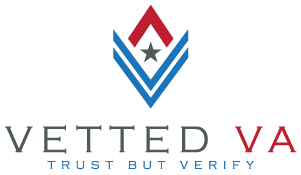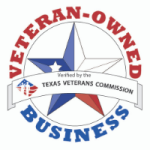Are $20,000 in Closing Costs Normal on a $415,000 VA Loan?
Possibly — but it depends on what’s included in that $20,000.
Closing costs vary widely by location, lender, and what’s wrapped into that figure. For example, if the estimate includes:
-
Title insurance (sometimes paid by the seller in Florida),
-
Prepaid taxes and insurance for escrow setup,
-
Discount points to buy down the interest rate, or
-
The VA funding fee (if not exempt),
Then $20,000 may not be unreasonable.
However, every situation is different. Reviewing the Loan Estimate (LE) and Closing Disclosure (CD) with a trusted professional is the only way to confirm accuracy.
Reference: VA Lender’s Handbook, Chapter 8, Section 2 – Fees and Charges the Veteran May Pay.
If you’re unsure, the Vetted VA Facebook group is a safe, verified place to post questions and connect with professionals who can review your numbers privately and help determine if they’re fair.
Why Did My Escrow Payment Go Up $400 a Month?
Escrow accounts are designed to pay your property taxes and homeowners insurance. When those costs go up, your escrow payment must adjust to cover the difference.
Here’s what could cause it:
-
Property tax reassessment: If your home’s taxable value rose, so did your tax bill.
-
Insurance increases: Premiums may have changed due to storms or regional risk factors.
-
New construction homes: These are common culprits. If your property was assessed at land value only when you bought it, your first year’s escrow was too low. Once the home is built and reassessed, your tax bill jumps significantly.
It’s frustrating, but it usually means your lender is catching up to reality, not overcharging you.
Reference: VA Lender’s Handbook, Chapter 10, Section 4 – Escrow Accounts.
Will It Be a Buyer’s Market Again?
Maybe — but not anytime soon.
There’s still a national housing shortage, driven by years of underbuilding after the Great Recession. At the same time, millennials and Gen Z buyers are entering prime homebuying years, keeping demand steady.
Some areas are seeing slower appreciation or modest price drops, but a full shift back to a buyer’s market depends on both inventory and interest rates.
For now, veterans should focus on personal readiness — not market timing. When the home, payment, and plan align, that’s the right time to buy.
Can You Really Close a VA Loan With No Money Down?
Yes — but “no money down” doesn’t mean no costs at all.
VA loans do not require a down payment for eligible borrowers with full entitlement. However, there are still closing costs, which must be paid by someone.
Closing costs may be:
-
Paid by the buyer,
-
Covered through lender credits (by accepting a slightly higher rate), or
-
Covered by seller concessions (up to 4% of the loan amount per VA rules).
You can’t roll all closing costs into the loan balance, but you can roll in the VA funding fee if applicable.
Reference: VA Lender’s Handbook, Chapter 8, Section 2.d – Seller Concessions; VA.gov – VA Home Loans.
Can You Use Disability Income to Qualify for a VA Loan?
Yes. In fact, VA disability income is one of the most stable and favorable income sources for qualification.
Because VA disability income is tax-free, lenders are allowed to “gross up” the amount by about 25% when calculating debt-to-income ratios.
Example:
-
Disability income: $2,000 per month (tax-free)
-
Grossed-up equivalent: $2,500 per month for qualification purposes
This helps improve the borrower’s debt-to-income ratio (DTI) without overstating true income.
Reference: VA Lender’s Handbook, Chapter 4, Section 5 – Income and Employment Verification.
Key Takeaways
-
Closing costs vary — always review your Loan Estimate and Closing Disclosure.
-
Escrow increases are common when taxes or insurance rise.
-
A true “buyer’s market” is unlikely soon, but local conditions vary.
-
“No money down” ≠ “no closing costs.” Those must still be paid by someone.
-
Disability income counts toward qualifying and can be grossed up 25% since it’s tax-free.
Where to Get Trusted Help
Veterans and active-duty members deserve clear, accurate answers. To connect with verified professionals who specialize in VA lending, visit Vetted VA and join the Vetted VA Facebook community for personal guidance.





